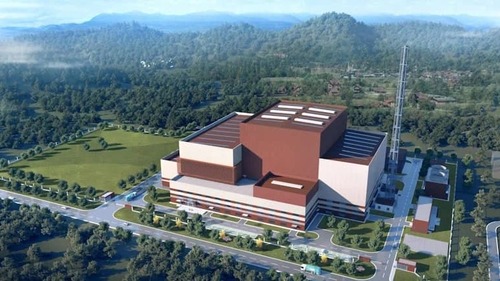Nova Alumina to Build Waste-to-Energy Facility, Replacing Coal for Sustainable Production
Zvornik, Bosnia and Herzegovina – Alumina, a leading supplier to the aluminum and cement industries, has announced plans to construct an innovative energy facility powered by alternative fuels, primarily municipal waste, as part of its ongoing transition toward sustainable energy. The project represents a significant step in replacing coal with a cleaner and more sustainable energy source.
The transition from coal to waste-derived fuel will reduce the environmental footprint of Nova Alumina’s operations while ensuring long-term production stability and job security. Currently operating a coal-fired energy facility, the company recognizes that this energy source is neither environmentally nor economically viable in the long term. In line with its sustainability strategy, Nova Alumina had previously announced the installation of solar power plants at its production sites.
Alumina is one of Bosnia and Herzegovina’s largest exporters, with a strong presence in the European Union, where strict environmental and sustainable production standards apply. To remain competitive in these markets, aligning its energy production with stringent environmental regulations is essential.
Investment and Project Details
Nova Alumina’s CEO, Zoran Stevanović, has revealed that the investment in the new energy facility will amount to EUR 150 million. The project will be implemented in partnership with a Chinese company, which previously constructed the Stanari coal-fired power plant near Doboj. The design phase is nearing completion, and the preparation of project documentation is now underway.
A team of engineers from Nova Alumina and its majority owner recently visited a similar facility in China, where they observed that emissions levels are well below EU regulatory limits. Based on these findings, the company has decided to advance to the next phase of project implementation.
Environmental and Social Benefits
The waste-to-energy facility is expected to significantly reduce the need for landfills, repurposing municipal waste as a valuable energy resource rather than allowing it to accumulate in landfills. Additionally, the initiative will encourage household waste separation and raise public awareness of sustainable waste management practices.
Nova Alumina emphasizes the importance of support from the broader community, including the Government of the Republic of Srpska, local citizens, and municipal waste utilities. The company is prepared to establish agreements with waste management companies throughout the Republic of Srpska and Bosnia and Herzegovina.
The technology to be deployed in the new facility will comply with the latest EU environmental protection standards, and emissions data will remain publicly accessible to ensure full transparency. CEO Zoran Stevanović also highlighted that the significant reduction in CO2 emissions could lower or even eliminate the company’s obligations to purchase CO2 certificates, resulting in both environmental and economic benefits.
Renewable Energy Initiatives
As part of its broader sustainability strategy, Nova Alumina is also investing in solar energy. A 3 MW solar power plant has already been installed on the company’s rooftops and is currently undergoing trial operation. Another 3 MW facility is expected to be operational by June, while preparations for additional ground-mounted solar panels are ongoing. The company ultimately aims to install photovoltaic plants with a total capacity of 20 MW. Nova Alumina currently consumes over 170 GWh of electricity annually.
Nova Alumina, together with its affiliated companies Boksit from Milići and H&P from Zvornik, forms a business group employing approximately 1,500 people. Through these transformative energy projects, the company is reaffirming its commitment to sustainable industrial development and environmental responsibility.
Categories
Latest news
A circular economy pioneer
REMONDIS' Lippe Plant →Founded back in 1991, RETERRA has transformed itself from a regional composting business into a nationwide biomass management specialist.
PureCycle Receives REACH Certification, Unlocking EU Sales of PureFive™ Resin
Port Of Antwerp →PureCycle Technologies has received the REACH Certificate of Compliance, allowing the Company to sell PureFive™ resin to customers in the European Union. PureCycle has plans to build its first Euro...
ECLUSE Scheldt Tunnel Completed: Belgium’s longest microtunnel is now a reality
Port Of Antwerp →Work on extending the ECLUSE steam network from the left to the right bank of the Scheldt has reached a major milestone. The tunnel that will carry the pipelines beneath the river has now been comp...
CO₂ as a raw material: new process makes climate gas usable for the chemical industry
Researchers from the Leibniz Institute for Catalysis (LIKAT), Ruhr University Bochum and Evonik Oxeno have developed a novel catalyst system that enables the use of the climate gas carbon dioxide (...
